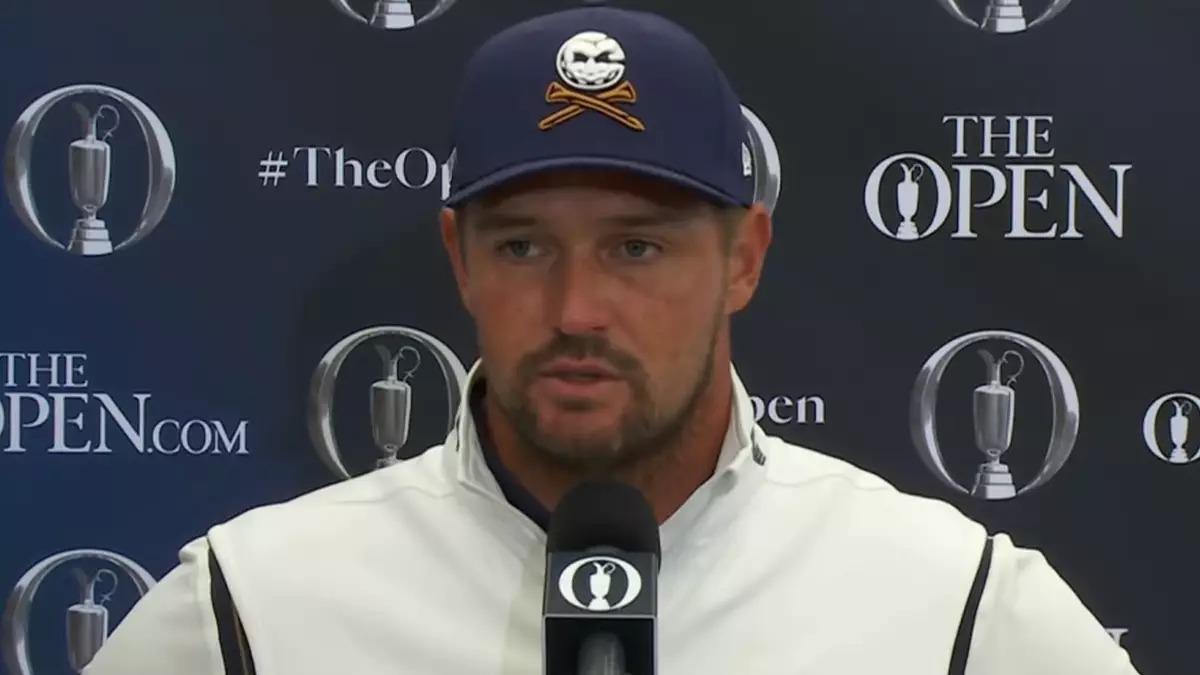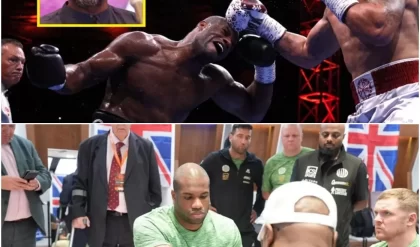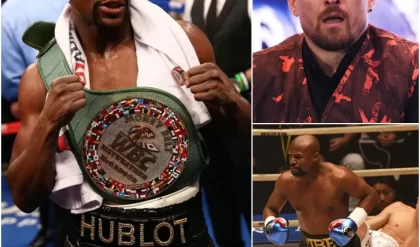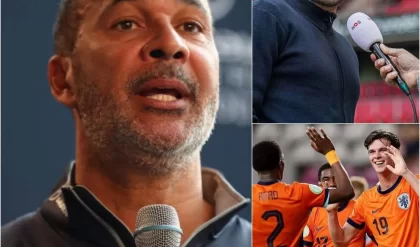The 2025 Open Championship at Royal Portrush was a spectacle of skill, resilience, and drama, but one issue lingered in the air, frustrating players and fans alike: slow play. Bryson DeChambeau, the American golf star known for his bold personality and scientific approach to the game, didn’t hold back after his third round, calling out fellow golfers for dragging their feet and proposing a radical rule change to fix the problem. His comments, laced with conviction and a touch of controversy, have sparked a heated debate in the golfing world, with fans and analysts divided over whether his solution is a stroke of genius or a risky move that could shake up the sport.

DeChambeau’s frustration boiled over after a grueling tournament where pace of play became a glaring issue. The first two rounds at Royal Portrush saw some groups taking nearly six hours to complete, a pace that left players finishing in near darkness and tested the patience of everyone involved. DeChambeau, who staged an impressive comeback after a disastrous seven-over-par first round to finish nine under and tie for 10th, was particularly vocal about the sluggish tempo. He didn’t mince words, stating, “Pace of play just never seems to be something that can get figured out. It’s very simple. It’s not difficult at all. You need to individually time everybody for their whole entire round. Very simple. Nobody wants to do it. Something that, because people are too scared to get exposed.”
This isn’t the first time slow play has haunted professional golf, but DeChambeau’s call to “expose” slower players by timing every shot individually has ignited a firestorm of discussion. His proposal is straightforward: track each player’s time from tee to green, shot by shot, and penalize those who consistently exceed a set limit. He argues that this system would bring accountability and fairness, ensuring that no one hides behind the group’s collective pace. “I can tell you, the first two rounds, it was out of control, what I saw,” DeChambeau said, emphasizing the chaos he witnessed. “It’s just, that’s the way people play. So, long story short, one day, I hope we can have a better system.”
The issue of slow play isn’t new, but it’s particularly pronounced at majors like The Open, where large fields of 156 players and challenging course conditions can stretch rounds to unbearable lengths. Unlike the US Open and PGA Championship, which use simultaneous starts on the first and 10th tees, The Open’s single-tee start led to a bottleneck, with groups teeing off from 6:35 AM to 4:16 PM BST. Rainy weather and frequent equipment changes, as noted by LIV Golf’s Jon Rahm, added to the delays. “We had a lot of rain come in and out, so umbrellas out, glove out, put the rain gear on, take the rain gear off,” Rahm explained, highlighting how external factors compounded the problem.
DeChambeau’s own experience at Royal Portrush fueled his frustration. During the third round, his group was put on the clock at the 17th hole, a move he felt was unfair given the circumstances. “He said we just kept losing time,” DeChambeau recounted about the official’s warning. “Unfortunately on the 16/17 exchange, you’ve got a downhill, drivable hole you can play pretty quick if you get it in the right spot. They did that and we just lost more time to the group in front of us.” Despite the pressure, he managed a three-under-par 68, but the incident clearly struck a nerve. His solution? A shot-by-shot timing system that separates individual performances from the group’s pace. “You time how long someone takes individually, and then you separate that from the other person playing,” he said. “It’s not rocket science.”

The golfing community is split on DeChambeau’s idea. Supporters argue it’s a bold step toward accountability, especially for players who dawdle on the greens or overanalyze shots. DeChambeau himself admitted to being deliberate with his putting but insisted he’s quick with irons and drives, citing Dustin Johnson as another player with a similar split in pacing. “I’d love to be timed, and I have no problem with that,” he declared, challenging others to embrace transparency. On social media, some fans echoed his sentiment, with one X post praising his “no-nonsense approach to fixing a problem that’s plagued golf for years.” Others, however, see it as a logistical nightmare. Timing every shot for every player in a 156-player field could overwhelm officials and marshals, potentially slowing play further or creating a tense atmosphere where players feel micromanaged.
DeChambeau’s outspokenness comes at a time when his public persona is under scrutiny. Once criticized for slow play himself in 2019, he’s worked to reshape his image, leveraging his YouTube channel and fan-friendly antics to become one of golf’s most popular figures. Yet, a recent incident at The Open, where he brusquely told a volunteer spotter, “You can move out of the way,” after finding his ball, sparked backlash. Some fans called it “rude” and “entitled,” while others defended it as a heat-of-the-moment reaction under pressure. The clip went viral, amassing thousands of views on platforms like TikTok and X, highlighting the intense spotlight on DeChambeau’s every move. Despite the controversy, his resilience on the course—rebounding from a seven-over first round to a top-10 finish—underscored his competitive fire.
The slow-play debate also ties into broader discussions about golf’s evolution. DeChambeau, a LIV Golf star, has been a vocal advocate for innovation, from his scientific approach to equipment to his push for changes in the sport’s structure. His suggestion for a global tour feeder system and relegation in LIV Golf reflects his desire to shake up tradition. At The Open, he wasn’t alone in his frustration; Jon Rahm noted that larger fields in majors naturally lead to longer rounds, contrasting them with LIV’s faster-paced 54-hole events. “When you have 150 plus the first two rounds, every single Major, except the Masters, is going to be longer rounds,” Rahm said, suggesting that field size is a key factor.
As the golf world digests DeChambeau’s proposal, the question remains: will the governing bodies like the R&A and USGA consider such a drastic change? Penalties for slow play are rare, with officials often reluctant to enforce them in high-stakes events. DeChambeau’s call for individual timing could force players to confront their habits, but it risks alienating those who thrive on routine and deliberation. For fans, the idea is tantalizing—imagine a leaderboard not just for scores but for speed, exposing who’s holding up the game. Yet, the practical challenges are daunting, and the sport’s traditionalists may resist such a shift.
DeChambeau’s comments have already stirred the pot, trending across golf forums and social media. His willingness to challenge the status quo, coupled with his knack for grabbing headlines, ensures this debate won’t fade quietly. As he prepares for the Ryder Cup and the next LIV Golf season, his influence on and off the course continues to grow. Whether his shot-by-shot timing idea gains traction or fizzles out, one thing is clear: Bryson DeChambeau isn’t afraid to push boundaries, even if it means ruffling feathers. For now, the golfing world waits to see if his call to “expose” slow players will spark a revolution or remain a bold idea lost in the rough.





